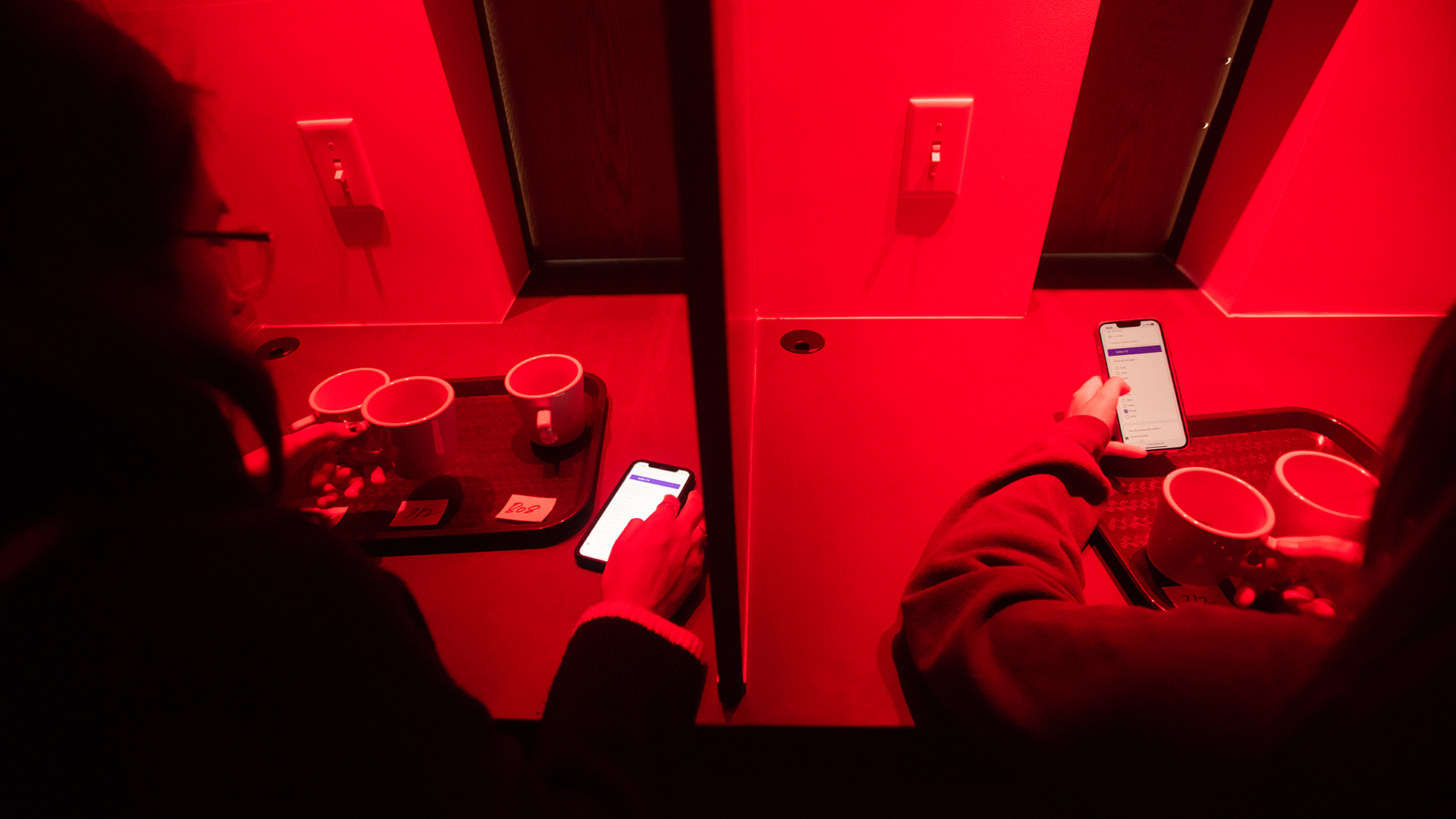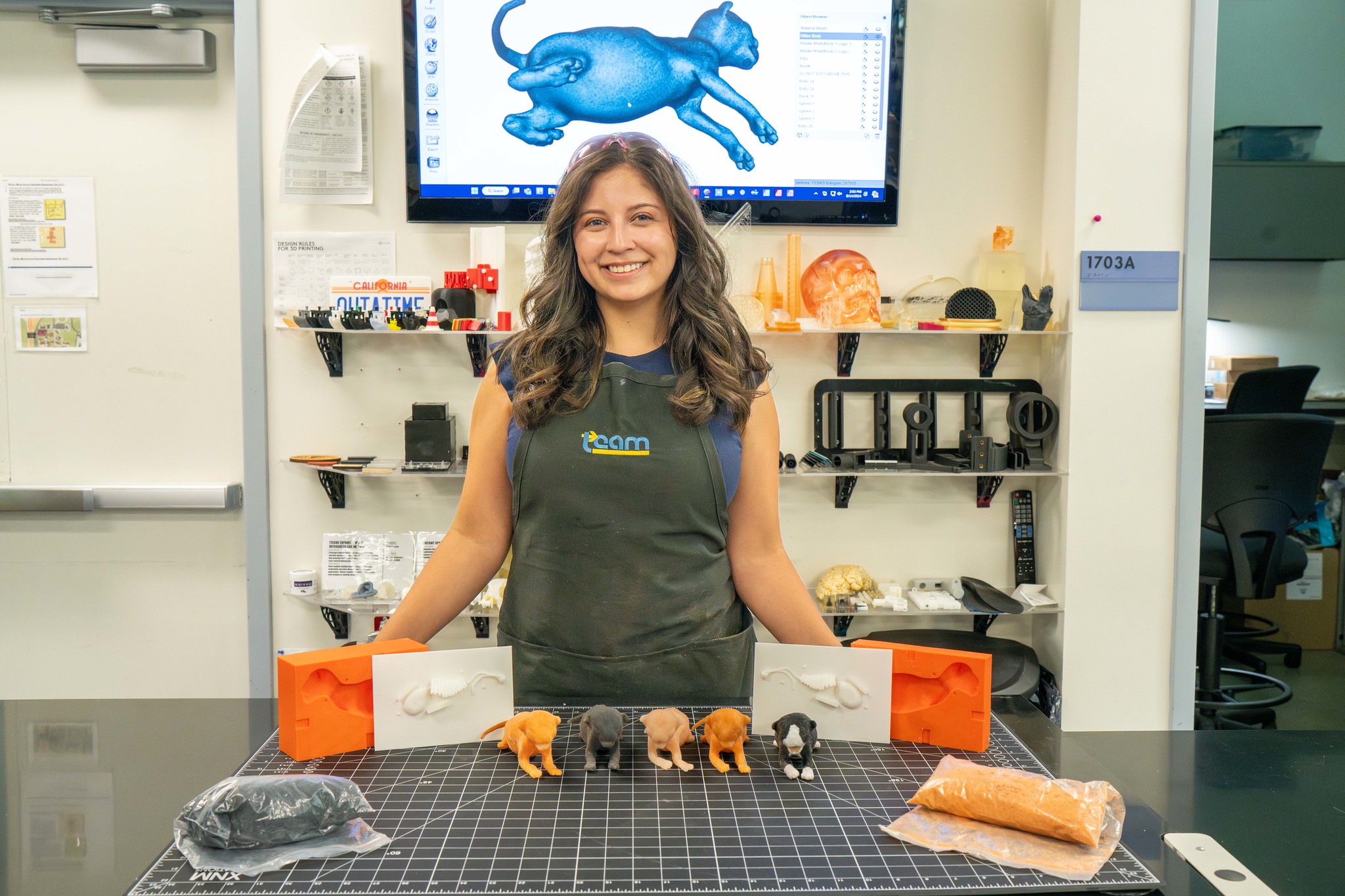UC Davis continues to show why it’s one of the nation’s leading public universities and a top research institution.
As a Research 1 university, UC Davis is conducting research at the highest level. Fewer than 200 institutions in the U.S. have this classification, and as a result UC Davis can offer students the opportunity to participate across all fields.
For the third consecutive year, UC Davis exceeded $1 billion in research funding, a year to year increase of over $30 million. Last fiscal year, researchers generated 140 records of invention, submitted 208 patent applications and secured 109 patents and plant certificates.
Here are some of our favorite stories from 2024 highlighting Davis’ advancements in research, and the unique faculty and students who make it all possible.
Power of science
Love Songs Lead Scientists to New Populations of Skywalker Gibbons in Myanmar:
A UC Davis-led study spurred efforts to conserve skywalker gibbons in Myanmar, where they are threatened by habitat loss and political strife. Scientists from UC Davis and other institutions followed these endangered monkeys, known for their distinctive mating songs, to locate 44 new groups of Skywalker gibbons in two regions of Myanmar.
Anti-Anxiety and Hallucination-Like Effects of Psychedelics Mediated by Distinct Neural Circuits:
The term “psychedelics” has been traditionally associated with “hallucinogens.” A new UC Davis research suggests, however, that it could be possible to separate treatment from hallucinations when developing new drugs based on psychedelics, with hopes to further explore the therapeutic qualities of such drugs. Read how this breakthrough was made through an unlikely exercise where mice navigated a maze and buried marbles in their bedding.
Close Encounters of the Whale Kind
UC Davis and SETI Institute scientists held a remarkable 20-minute “conversation” with a humpback whale named Twain, described as the first such communicative exchange between humans and humpback whales in the humpback “language.” On the Unfold podcast, hear how the exercise was also designed to inform how we might communicate with extraterrestrial life in the future. Watch a clip below and head to Unfold for the full story.
Our changing climate
Dammed No More, Klamath River Salmon Return
After the world’s largest dam removal project, salmon regained access to 400 miles of historical spawning habitat their species has been cut off from for more than a century. UC Davis scientists are playing a key role helping to answer a big question: Will it work? Will a diverse population of salmon thrive again now that the dams are removed?
Avian Flu Spread to Mammals
A study from UC Davis and the National Institute of Agricultural Technology in Argentina found that the highly pathogenic avian influenza virus H5N1 has adapted to spread between birds and marine mammals, posing an immediate threat to wildlife conservation and marking the first genomic characterization of the virus in marine wildlife on the Atlantic shore of South America.
The Reach of California Wildfire Smoke
Sometimes drifting from hundreds of miles away, wildfire smoke touched nearly every lake in North America for at least one day per year from 2019 to 2021, according to a new UC Davis published in the journal Global Change Biology.

Future of food
Probiotics: Hype or Health? (Podcast)
Probiotic products might be trending, but which are actually healthy? A new episode of the UC Davis podcast Unfold took a closer look at the proliferation of probiotics and interviewed Maria Marco, a microbiologist and professor in the department of food science and technology at UC Davis, who co-authored a study providing the first large-scale estimate of live microorganisms in the U.S. diet. Before pressing play, take the podcast’s probiotics quiz to help guide the next trip to the grocery store.
A Cutting Edge Cup at the UC Davis Coffee Center
Researchers across the sciences and humanities disciplines are demystifying the most consumed drink in America in the only university coffee lab in the country, the UC Davis Coffee Center, which opened in May. Learn how the center is tackling challenges such as sustainable farming, grading bean color and measuring consumer taste preferences.
Discovery forward
Scholar Uncovers Forgotten Poem
Tobias Warner, an associate professor of French, found a surprising gem during his research: a forgotten poem written by foundational Senegalese author and feminist Mariama Bâ. Though she died in 1981, leaving behind only a handful of published works, Bâ has remained an important figure in African literature.
Mathematically Stoked
Since childhood, Steve Shkoller has organized his life around two things: surfing and mathematics. They share something in common: waves. Read about Shkoller’s goal to develop both geometric and analytical tools that mathematically explain the multidimensional behavior of shockwaves.

Finding – and building – solutions
3D Kitten Care
Tube feeding is a specialized skill required when caring for kittens under 4 weeks old, but caregivers often learn it on an ad hoc basis when a newborn is most in need. A professor of veterinary medicine and a team of development engineers aim to improve and increase access to the training of this technique with a to-scale 3D-printed kitten model, equipped with a trachea, windpipe, rib cage and more features to help teach users proper procedures.
History with an Eye Toward Reparations
Read about a groundbreaking public history partnership between history graduate students at UC Davis under the direction of Professor Gregory Downs, and the city of Sacramento and the Greater Sacramento Urban League. Collectively, they seek to answer the question: What could reparations look like for the city’s Black community?
MORE BEST OF 2024
- Top UC Davis Magazine stories
- Alumni Books — 30 Aggie authors published new books this year.
- 12 Amazing Discoveries Across the UC System.
Student researcher
Meet the Insect Scholars
The Research Scholars Program in Insect Biology, colloquially known as Insect Scholars, aims to provide undergraduates with closely mentored research experience in biology. The program offers 10 to 12 academically strong and highly motivated undergraduates, including third-year transfer students, multi-year research experience that cultivates students’ skills for careers in biological research. Read about their research experiences from the fields to the lab.
Learning Through Virtual Reality
See how UC Davis undergraduate research students are using public engagements and virtual reality headsets to promote STEAM learning and improving children’s education, including an event at Sacramento’s SMUD Museum of Curiosity.
